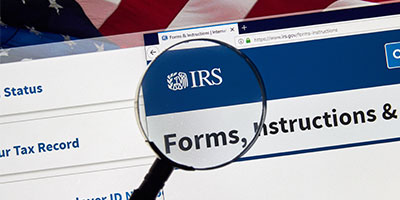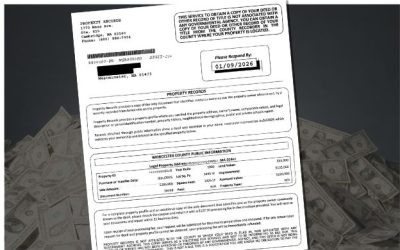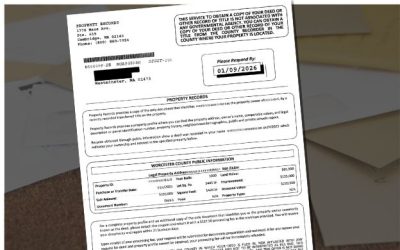
Jun 19, 2025 | Around The Home, Around The Hoome, Artificial intelligence, Buying Real Estate, Chapter 7 Bankruptcy, Consumer Tips, Credit Scoring, Fair Housing, Federal Reserve, FHFA, Financial Crisis, Financial Fraud, Financial Reports, Foreclosure, Happy Thanksgiving, Holidays, Home Building Tips, Home Buyer Tips, Home Buying Tips, Home Care, Home Care Tips, Home Closings, Home Decorating, Home Financing Tips, Home Maintenance, Home Mortgage, Home Mortgage Tips, Home Seller Tips, Home Selling Tips, Home Tips, Home Values, Homebuyer Tips, Homeowner Tips, Housing Analysis, Housing Market, Interesting Stuff, Investment Properties, Legislation, Market Outlook, Mortagage Tips, Mortgage, Mortgage Guidelines, Mortgage Lenders, Mortgage Rates, Mortgage Tips, mortgage-rates-whats-ahead-september-17-2012, News, Organization Tips, Personal Finance, Probate Law, Rankings, Real Estate, Real Estate Agent Information, Real Estate Definitions, Real Estate Tips, Real Estate Trends, Realtors, Selling Real Estate, Selling Your Home, Short Sales, Statistics, Success, Taxes, The Economy, Title Insurance
Whether you’re buying with cash, investing from abroad, transferring property to a family member, or just trying to close without a headache, you’ll want to know what can trigger federal scrutiny — and how to stay off the radar.
From flagged wire transfers and shell companies to gift-of-equity sales and land near military zones, this isn’t your average title-and-keys situation.
It’s real estate with a side of national security, tax enforcement, and financial crime prevention.
Is Big Brother Watching Your Home Sale?
What Buyers and Sellers Should Know About Federal Oversight
You’re Not Paranoid — They Might Actually Be Watching
What you didn’t know on how federal agencies keep tabs on select real estate transactions.
Your Closing Packet Could Be a Federal File
How Your Paper Trail Might Raise Red Flags — And What You Can Do About It
What the FBI, IRS, and Homeland Security
Could See in Your Closing Docs
We’re unpacking what agencies might spot inside your deal’s fine print.
Caught in the Crosshairs? What Triggers Federal Interest in Your Home Sale
The Top Red Flags That Could Invite a Closer Look from Washington
Cash, LLCs, or Land Near a Base? You Might Just Be a Target
The warning signs that put your deal on the government’s radar — and how to stay clear.
Follow the Money: How the IRS Tracks Financial Crimes Through Real Estate
From Unreported Income to Shell Game Schemes
— What IRS-CI Is Looking For
Your Closing Could Be an Audit Trigger — Here’s How the IRS Sees It
Explore the patterns, documents, and loopholes that turn ordinary deals into criminal cases.
Providing title, escrow, closing and settlement services to clients throughout Massachusetts and New Hampshire
“As a realtor, the Rocheford team went above and beyond to make sure my client was not only protected from a legal standpoint but also operated in a timely manner to execute the sale of my client’s dream home.
Thank you for the great experience for myself and my client! Looking forward to our next deal together!”
Realtor®
“I don’t usually use attorneys that often. But if an attorney is needed, I couldn’t recommend this law office enough. I always pride myself on responding quickly to emails and calls, but I was in awe of how fast paralegal Robert Heckman would respond to us. We sold our house a couple months ago and then did a two-part land swap with neighbors and my folks, and both transactions were seamless, including coming in to sign paperwork.
In short, if you need a law office that is responsive and attentive to detail, definitely consider them!”
Leominster, MA
“Excellent, conscientious and professional.
The communication throughout our Real Estate transaction was better than expected. We thought the fee to be very reasonable considering the work accomplished on our behalf. The law office handled the entire closing without us having to be in attendance….as we requested. I have had experience with very competent lawyers and law firms as the result of my previous profession. I would place this law office right up there among the best in their real estate field of expertise and surprisingly at very reasonable and affordable rates/fees.”
Buzzards Bay, MA

Jun 17, 2024 | Personal Finance
As a home buyer or refinancing household in Massachusetts , you have choices with respect to your mortgage.
You can choose a loan with accompanying discount points in exchange for lower mortgage rates; you can choose adjustable-rate loans over fixed rate ones; and, you can choose loans with principal + interest repayment schedules or repayments which are interest only, as examples.
For borrowers using fixed rate loans, there’s also the choice between the 30-year and 15-year fixed rate mortgage. Each has its positives and negatives and neither is “better” than the other.
Choosing your most appropriate fixed-rate term is a matter of preference and, sometimes, of budget.
The 15-Year Mortgage
With a 15-year fixed rate mortgage, mortgage rates are often lower as compared to a comparable 30-year fixed rate mortgage. However, because loan repayment is compressed into half as many years, the monthly payment will necessarily be higher, all things equal. On the other side, though, homeowners using a 15-year fixed rate mortgage will build equity faster, and will pay less mortgage interest over time.
The 30-Year Mortgage
With a 30-year fixed rate mortgage, mortgage rates tend to be higher as compared to a 15-year fixed rate loan, but payments are much lower — sometimes by as much as 50%. Lower payments come at a cost, however, as mortgage interest costs add up over 30 years. Regardless, 30-year fixed rate mortgages remain the most common mortgage product for their simplicity and low relative payment.
Which One Is Right For You?
There is no “best” choice between the 15-year fixed rate mortgage and the 30-year fixed rate mortgage. Choose a product based on your short- and long-term financial goals, and your personal feelings regarding debt. Mortgage applicants choosing the 30-year fixed rate mortgage can qualify to purchase homes at higher price points, but those using the 15-year fixed rate product will stop making payments a decade-and-a-half sooner.
There are benefits with both product types so, if you’re unsure of which path works best for you, speak with your loan officer for guidance and advice.
Jun 14, 2019 | Personal Finance

Perhaps you have won the lottery, received an inheritance, or cashed in one of your investments, and now you have a large sum of money you don’t know what to do with.
Although it is tempting to cruise around town in a brand new sports car it is important to think carefully about how to spend your newfound cash.
To give you some ideas on the smartest way to use your new wealth, here are five things to do with a windfall other than spend it right away:
1. Erase Your Debt
Your new found money will allow you to clear up all of your debts, which will lift a huge financial burden off your back and give you a lot of freedom. Start with the debts with the highest interest first, such as your credit card debts.
2. Create an Emergency Fund
Calculate how much money you would need to cover your living expenses for 6 months. Take this amount off your windfall and place it into a savings account. This money will be your fail safe. In case of an emergency, such as you hurt yourself, become ill, or lose your job, you will have enough money to live comfortably until times get better, without having to go into debt.
3. Invest in Your Home
If you spend your windfall on a renovation for your home, there is a good chance that you can increase your property value enough to make it more than worth it. Talk to estate agents in your area to determine which type of home improvement will increase your home’s value the most, but usually kitchens and bathrooms are the best rooms to update.
4. Buy a Vacation Property
Consider putting your newfound wealth into a holiday home overseas in a popular destination. You will be able to enjoy lounging on the beach there, and when you are not using it you can rent out the home to tourists to cover the costs. Later on in life when you want to retire, you will always have the option of moving there!
5. Live Off the Interest
If you won a million dollars in the lottery, you could spend it right away on a huge house and a car and then have nothing left. Or, you place it in an investment account and have it earn 6% annually. At this rate you would have approximately $5,000 per month or $60,000 per year without ever touching your initial sum. You could easily live off this amount and never have to work again.
These are a few ideas of what you could do with your money if you are lucky enough to receive an unexpected windfall.
Do you have any other ideas of how you could use your windfall?
Aug 5, 2015 | Home Mortgage Tips, Home Seller Tips, Personal Finance
 If you’re considering selling your home in the near future, you may be tempted to simply cut out the middleman and opt for an FSBO sale. However, selling a home is a major undertaking, and most “For Sale By Owner” home sales run into obstacles.
If you’re considering selling your home in the near future, you may be tempted to simply cut out the middleman and opt for an FSBO sale. However, selling a home is a major undertaking, and most “For Sale By Owner” home sales run into obstacles.
So why is an FSBO sale such a problem for most homeowners? Here are three reasons why you’ll want an agent to represent you instead of going it alone.
An FSBO Puts You At Risk Of A Lawsuit
Selling a home involves mountains of paperwork, and in order to make the transfer of ownership legal and above board, there is a large amount of minutiae that need to be considered. For instance, as a seller, you are legally obligated to disclose certain facts about the property: Some jurisdictions require you to disclose whether a death occurred in the home, for example, or if the home is located in a historical district.
Even one seemingly minor mistake could open you up to legal action. An experienced real estate agent already knows everything that needs to be disclosed, and although agents can make mistakes, they have errors and omissions insurance to protect them. Most homeowners don’t have that protection in place.
Buyers’ Agents May Discourage Buyers From Viewing Your Home
When it comes to FSBO deals, most buyers’ agents anticipate the deal being a challenge at best. Buyers’ agents typically only show FSBO properties in one of two cases: Either the price is extremely low or there aren’t any other homes available.
But according to Atlanta real estate agent Bruce Ailion, most experienced agents have had an FSBO transaction go poorly at some point and are now wary of them. Without a real estate agent to represent you, sellers’ agents will be hesitant to deal with you – and you won’t get as many offers on your home as you’d like.
You’ll Need To Discern Qualified Buyers From Dreamers
One thing that most homeowners don’t know is that not everyone who views your home is actively interested in buying it in the near future. Showing your home may mean taking time off work or away from activities you care about, and if the prospect doesn’t end up buying, you’ve wasted your time.
A real estate agent knows what questions to ask in order to weed out the merely curious and find motivated buyers, so you’ll sell your home much faster.
FSBO sales don’t always end in disaster, but they’re considerably difficult to do well. An experienced real estate agent can help you sell your home faster and for more money than you can on your own. Contact your local real estate professional today to learn more.
Nov 12, 2013 | Personal Finance
 How do you know what happens to your documents when you put a piece of paper in the trash? It can be difficult to know who is seeing it and what they are doing with it. It isn’t very common to burn trash anymore; therefore you can be sure that your paper garbage or recycling is likely to pass through several hands on its way to a landfill or recycling center.
How do you know what happens to your documents when you put a piece of paper in the trash? It can be difficult to know who is seeing it and what they are doing with it. It isn’t very common to burn trash anymore; therefore you can be sure that your paper garbage or recycling is likely to pass through several hands on its way to a landfill or recycling center.
Step–By–Step, Your Documents Can Get Pilfered
Every step that occurs once the trash leaves your control has risk that someone will find personal information they can use to cause you harm. One way to safeguard personal information is to shred it before it goes into the trash.
Shredding devices are available at most office supply stores. Cross-cut shredders provide more security than strip-cut shredders. You may want to consider one depending on your level of concern. Shredding services or shredding events are often offered by financial institutions or community organizations.
Properly destroying sensitive personal information is a key step in helping to keep your identity secure. You really should shred any documents containing personal information, but be cautious not to shred financial documents that you may still need.
To Shred Or Not To Shred, That Is The Question…Or Maybe It‘s When To Shred
The Better Business Bureau offers these guidelines on when to shred:
- Deposit, ATM, credit, and debit card receipts can be shredded once the transaction appears on your statement
- Canceled checks, credit card statements, and bank statements with no long-term significance can go through the shredder after one year; if used to support tax returns, keep them for seven years
- Monthly bill statements can be shredded one year after receiving, to allow for year-to-year bill comparisons (another good way to monitor your budget!)
- Credit card contracts and loan agreements should be saved for as long as the account is active
- Pay stubs can be shredded yearly after reconciling with your W-2 or other tax forms
- Documentation of investment purchases or sales should be kept for as long as you own the investment and then seven years after that; shred monthly investment account statements annually after reconciling with a year-end statement
- Always shred documents with Social Security numbers, birth dates, PIN numbers or passwords, financial information, contracts or letters with signatures, pre-approved credit card applications, medical and dental bills, travel itineraries, and used airline tickets.
Jan 25, 2013 | Personal Finance
 As a home buyer in Massachusetts , you can get a feel for whether a home’s systems and appliances are in working order. However, you can’t know for certain until after the home’s been inspected.
As a home buyer in Massachusetts , you can get a feel for whether a home’s systems and appliances are in working order. However, you can’t know for certain until after the home’s been inspected.
This is why real estate agents recommend that buyers hire a licensed home inspectors immediately after going into contract. It’s the best way to really know the home which you’re buying.
By definition, a home inspection is a top-to-bottom check-up of a home’s physical condition and systems, including a review of the structure, and its plumbing and electrical systems. Home inspections are not the same as a home appraisal, which is a valuation of the property.
When you commission a home inspection, you should be present for it. Here are 3 reasons why :
Seeing For Yourself
There’s a big difference between reading a report and seeing “live” what may be right or wrong with a home. With first-hand knowledge of a potential issue, you’ll be in a better position to determine whether a problem warrants contract cancellation, or whether it’s an additional negotiation point.
Discovering The Home
Via a home inspection, you will learn where the systems reside within a home (e.g.; boiler room, garage), and how to operate them. This is a valuable educational opportunity and most inspectors are happy to share what they know. It’s also a chance to ask questions about maintenance and upkeep.
Better Understanding
A home inspector’s job is to review and disclose the condition of the home. The inspector’s report, however, is just a summary on paper. In being present for the inspection, a buyer will be able to visualize and understand the report’s conclusions more clearly. This can make for more effective re-negotiations with the seller, in the event that damage or distress is identified.
So, what should you do during the home inspection? Your primary tasks are to watch, listen, learn and ask questions. A professional home inspector will welcome your participation in the process.















 If you’re considering selling your home in the near future, you may be tempted to simply cut out the middleman and opt for an FSBO sale. However, selling a home is a major undertaking, and most “For Sale By Owner” home sales run into obstacles.
If you’re considering selling your home in the near future, you may be tempted to simply cut out the middleman and opt for an FSBO sale. However, selling a home is a major undertaking, and most “For Sale By Owner” home sales run into obstacles. How do you know what happens to your documents when you put a piece of paper in the trash? It can be difficult to know who is seeing it and what they are doing with it. It isn’t very common to burn trash anymore; therefore you can be sure that your paper garbage or recycling is likely to pass through several hands on its way to a landfill or recycling center.
How do you know what happens to your documents when you put a piece of paper in the trash? It can be difficult to know who is seeing it and what they are doing with it. It isn’t very common to burn trash anymore; therefore you can be sure that your paper garbage or recycling is likely to pass through several hands on its way to a landfill or recycling center. As a home buyer in Massachusetts , you can get a feel for whether a home’s systems and appliances are in working order. However, you can’t know for certain until after the home’s been inspected.
As a home buyer in Massachusetts , you can get a feel for whether a home’s systems and appliances are in working order. However, you can’t know for certain until after the home’s been inspected.